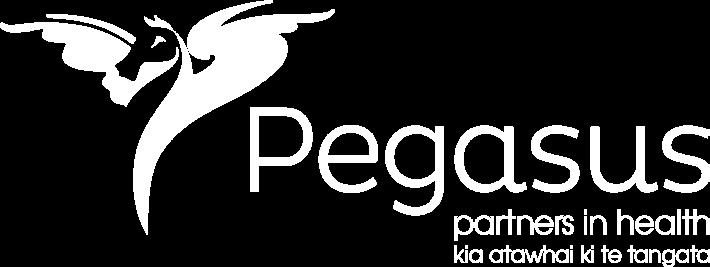PEGASUS 2025
Kia atawhai ki te tangata
Caring for the health and wellbeing of Cantabrians
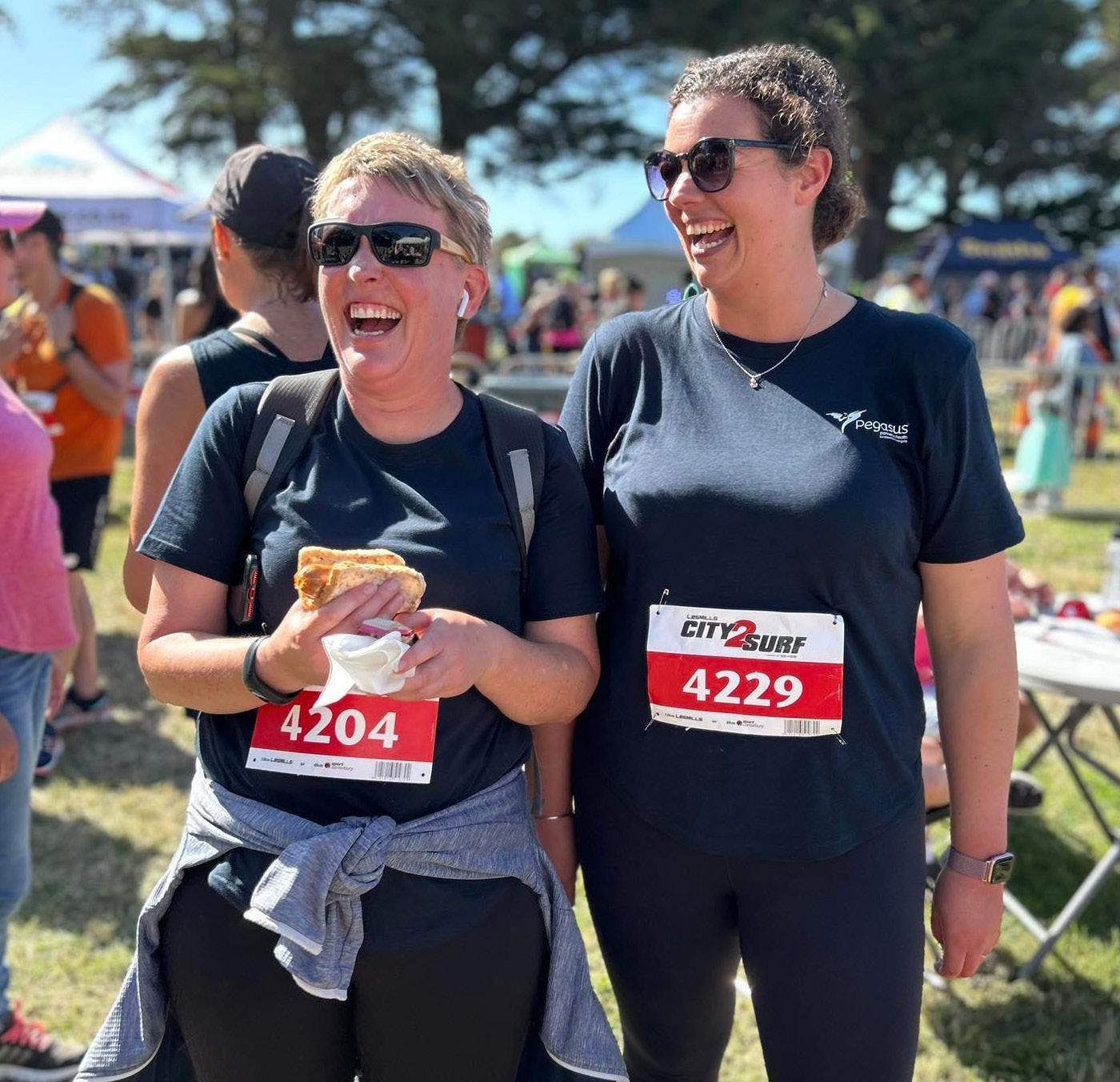

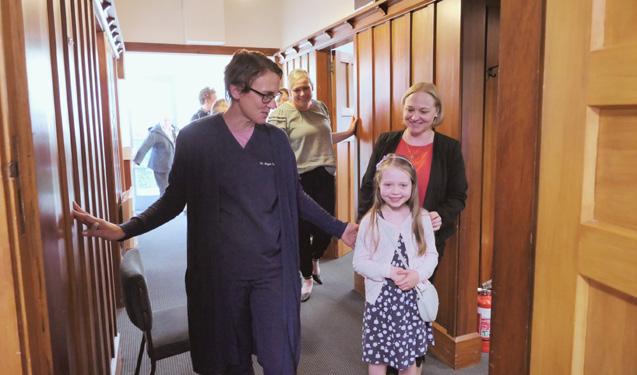



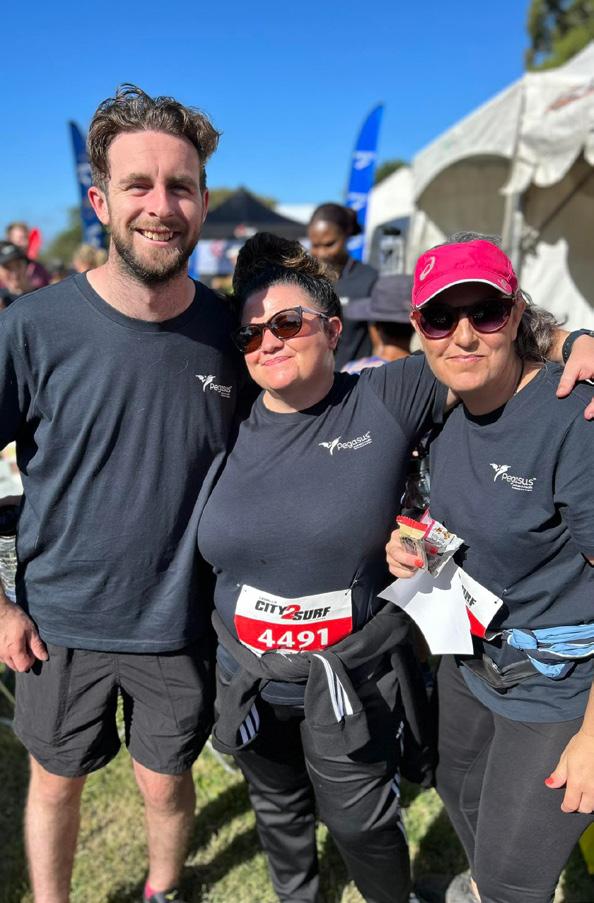








Tēnā koutou
katoa,Last month we bid farewell to Mark Liddle. Mark had been with Pegasus Health for 12 years, firstly as Chief Operating Officer before stepping into the role of Chief Executive Officer (CEO). We are thankful to Mark for his contribution and leadership, particularly during the pandemic and as we navigated the Health Reforms. We wish him all the best.
In the meantime, we are looking to recruit a new CEO with a commitment to the enhancement of equitable health outcomes across the Waitaha Canterbury region. While this process is followed, the Senior Leadership Team is working closely with Board Chair, Barry Bragg, to ensure the organisation is supported and continues to serve our members and the community.

We are preparing for winter and working jointly with organisations across the health sector to build and ensure we have the capacity to support our general practice and primary care partners.
Ngā mihi nui, LISA BRENNAN General Manager of Patient & Provider Services“Anei au, tō pou whirinaki.”
I’m here, I’ll support you.Left to right: (back) Sarah Mitchell, Lisa Brennan, Michael McIlhone; (front) Irihāpeti Mahuika, Jacky Percy.

Heart failure is common, affecting 1-2% of the Aotearoa New Zealand’s population. While rates in the older population have stabilised over recent years, it is concerning that the incidence of heart failure in younger populations is rising.
The first Small Group Education for the year looked at Manawa Ngoikore | Heart Failure. A particular focus was given to mana-enhancing practice as a way to engage and build relationships with others whilst nurturing their spiritual, emotional, physical and intellectual dimensions and ultimately delivering better outcomes to priority populations.
“The building of postive relationships with Māori patients is key to improved health outcomes for any condition, including heart failure,” Melody Tuliau, Pegasus Health Hauora Māori Manager, said.
Inequity and health care disparities play a serious role in the incidence of heart failure.
• Males in general are 1.4 times more likely to be diagnosed with heart failure (than females), but Māori males are 2.1 times more likely to be diagnosed compared to non-Māori males.
• The most deprived population are 3.7 times more likely to be diagnosed compared to the least deprived.
• While those living with disability are 2.7 times more likely to be diagnosed.
Best practice in management of heart failure has changed in recent years with new disease modifying interventions available, new international guidelines, and new approaches to treatments. Patients are often dealing with a variety of health care professionals as they manage their heart failure, and the importance of communication between members of the care team is critical.
Small Group Education is attended by GPs, Nurse Practitioners, Practice Nurses, and Community Pharmacists in Canterbury. It ensures that consistent messages are delivered across the primary care team.
“It was a fantastic topic allowing me to have informed conversation with both patients, their whānau, and prescribers alike on current best practice,” said Tim Kennedy, Pharmacist at Unichem Templeton Pharmacy.
The full Manawa Ngoikore | Heart Failure Small Group materials are available on our learning website Te Rau Ako.
The Pegasus Health Acute Demand Service provides communitybased care for patients that would otherwise require hospital admission. Established in 2000, the Acute Demand service is the only one of its kind in Aotearoa New Zealand.
Among other conditions, Acute Demand supports people with chronic, long-term heart conditions to receive care in their own homes.
“Typically, we see patients who have been discharged from hospital and support them towards selfmanagement at home. The goal is to keep people out of hospital,” Barbara Hendry, Nursing Team Leader - Acute Demand said.
Acute Demand provides short-term support for patients with heart failure as needed until the patient has a better understanding of how
to self-manage. The Acute Demand team use the Staying Well with heart failure booklet produced by the Heart Foundation. An excellent resource to help patients self-manage their condition by helping them to understand their medications and recognise declining symptoms.
Both general practitioners (GPs) and the hospital can refer patients to Acute Demand. Heart patients will typically present with shortness of breath, swollen legs, chest pain or other symptoms.

“Acute Demand is an excellent stepping stone to avoid hospital admission. We can support people to get their health back under control and set them up to understand and manage their condition long-term,” Barbara said.
Barbara encourages GPs to phone for advice if they have patients presenting long-term heart health needs.
“We are here from 7.30am to 11.00pm for advice and guidance if you are contemplating hospital admission. We may be able to help them in the comfort of their own home instead,” Barbara said.
The annual City2Surf event held in Ōtautahi Christchurch this March was a great success, with participants from our wider Pegasus community enjoying a beautiful day out. It was a great chance to catch up with other practices while enjoying some physical activity.



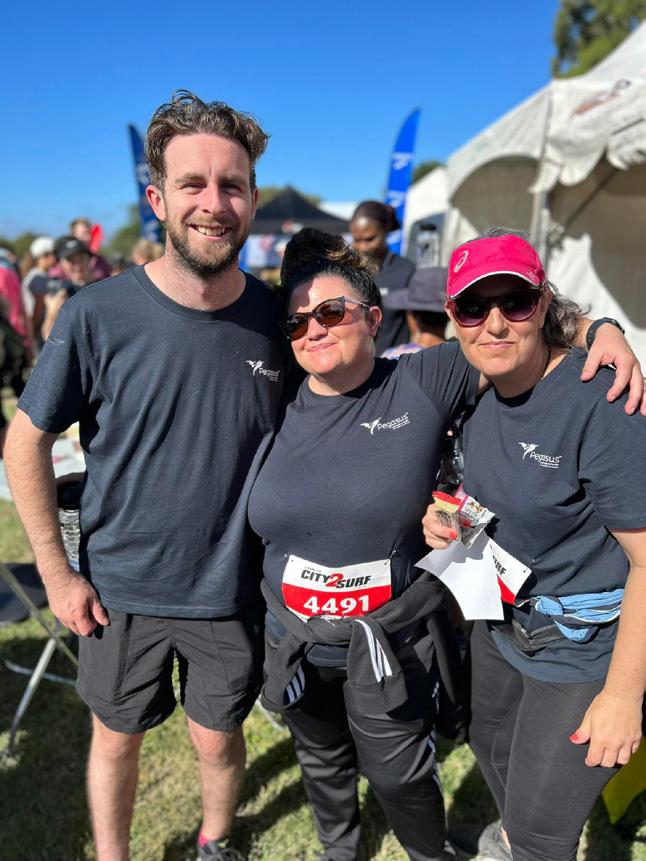

The finish line was a place of red faces and laughter as participants completed the race. Many people gathered at our tent to enjoy a sausage sizzle and wind down with a relaxing massage. The atmosphere was vibrant and exciting, with everyone cheering and congratulating each other on their accomplishments.
If you missed out on this year’s event, be sure to keep an eye out for next year’s City2Surf and join our Pegasus team for an unforgettable experience.
“It was a beautiful day and the team at Harewood Medical Centre, ‘The Butt Strutters’, had a wonderful time and worked hard to raise awareness and over $1400 (so far) for our chosen charity, Bowel Cancer New Zealand. It was a great effort and achievement by the team and fun was had by all.”
– Harewood Medical Centre
“Our team really enjoyed the event, and it was great to get out for some exercise. The weather was perfect and there was lots of fun and laughter. We look forward to doing it again next year and hope to get an even bigger team doing it. It was a very well-organised event and Pegasus did a great job.”
– Waltham Medical CentreWe have recently launched a new messaging campaign, ‘If it can wait, don’t come out late’, aimed at reducing nonurgent presentations to our 24 Hour Surgery (24HS) during the later hours of the evening when staffing reduces. This campaign runs in conjunction with our ‘Choose Your Best Healthcare Option’ initiative, which is designed to guide patients towards receiving care in the most appropriate setting.

Our efforts have been motivated by a significant
increase in non-urgent presentations to our facility in the evening. Since the beginning of February 2023, we have observed a 14% increase in weekday presentations from 4.00pm until midnight, with an average of 106 patients presenting compared to 93 during the same period in 2021/2022. We have also seen a similar increase in weekend presentations, with 10% more patients seeking care.
We have already begun to implement this messaging on our website and social media platforms. We would greatly appreciate your support in continuing to share our ‘Choose Your Best Healthcare Option’ resources with your community and around your practice. By spreading the word, we can empower the people of Waitaha Canterbury to make informed decisions about their healthcare.
Thank you for your support in helping us achieve this goal.
From 1 April 2023, everyone aged 30 and over and people aged 16 years and over who are at higher risk of severe illness from COVID-19 can receive the bivalent Pfizer COVID-19 vaccine as an additional booster, if it has been at least 6 months since their last COVID-19 booster or COVID-19 infection.
Clinical discretion can be applied to spacing rules following an informed consent discussion. Minimum spacings for vaccination without a prescription are four months between booster doses; five months between primary and first booster; and three months after COVID-19 infection. Any doses given earlier than these will require a prescription and written consent form.
Patients seeking COVID-19 vaccination can book at www. BookMyVaccine.nz or call the COVID Vaccination Healthline on 0800 28 29 26 (8am to 8pm, 7 days a week).

The bivalent Pfizer vaccine can be given at the same time as other vaccines, except Zostavax where there should be a seven-day gap between the two. If the flu vaccine and COVID-19 are given during a single consult, then funding for providing both services can be claimed.
Further information on who should receive COVID-19 vaccination is available in this summary table and this FAQ from Te Whatu Ora.
from COVID-19 mean?
• Severely immunocompromised people.
• Those who have a medical condition that increases the risk of severe illness from COVID-19.
• Those who live with a disability with significant or complex health needs or multiple comorbidities.
Pippa MacKay, general practitioner (GP) at Ilam Medical Centre thinks it is an amazing privilege to be a GP, and while she has just retired and sold her practice, she still is working part-time at the Christchurch Hospital.

“There is a certain amount of loss around leaving a profession like medicine, which is why I have not decided to quit full-time yet and still doing part-time work at the hospital,” Pippa said.
Pippa was the first woman chair of the New Zealand Medical Association, and with that came many challenges.
“Dealing with media was quite challenging, I had three small children, and often had a television camera set up around the surgery. But it was also very stimulating and many of my patients were roped into being on television,” she said.
Other challenges she faced stemmed from COVID-19, having to work from home and do phone consultations.
“It made people aware that a phone consultation is a great way of getting in touch with a doctor. Even now we find a lot of people preferring phone consultations because they are too busy to get to see us in person, that is something good that has come from COVID,” Pippa said.
Focusing some of her career in obstetrics saw Pippa delivering many babies, which she then watched grow up and start their own families.
“One time I had to deliver a baby in a ball gown as I had been at the Opera and got called in!” Pippa said.
As Pippa begins the last leg of her career, she shared some advice for trainee or new doctors and nurses.
“Pursue an area of medicine that you are excited about, that brings you joy. That way when you hang up your hat like I am, you can look back and think I had a great working life that was good for me, and I made a difference.”
“Do something you love and enjoy it for the rest of your working life,” Pippa said.
With a love of sport and mental wellbeing, Ben Shine quickly realised that his sciencefocused degree was not the right path and pivoted to psychology.
“Through sport and the focus there on wellbeing, I got more interested in psychology. I then had a great supervisor along the way who got me interested in social psychology,” Ben said.
Having participated in research, focused on a youth adventure education course in the Bay of Islands, Ben hopes to combine his
love of sport and the outdoors with his qualification in psychology.
“The research found an improved sense of belonging and resilience among youth who participated in the study,” he said.
Ben is looking forward to starting an internship with kaupapa Māori health and social services provider, Purapura Whetu, where his focus is on mental health support for individuals and whānau.
He is currently completing his Masters of Science in Psychology and a Postgraduate Diploma in Clinical Psychology through the University of Otago.
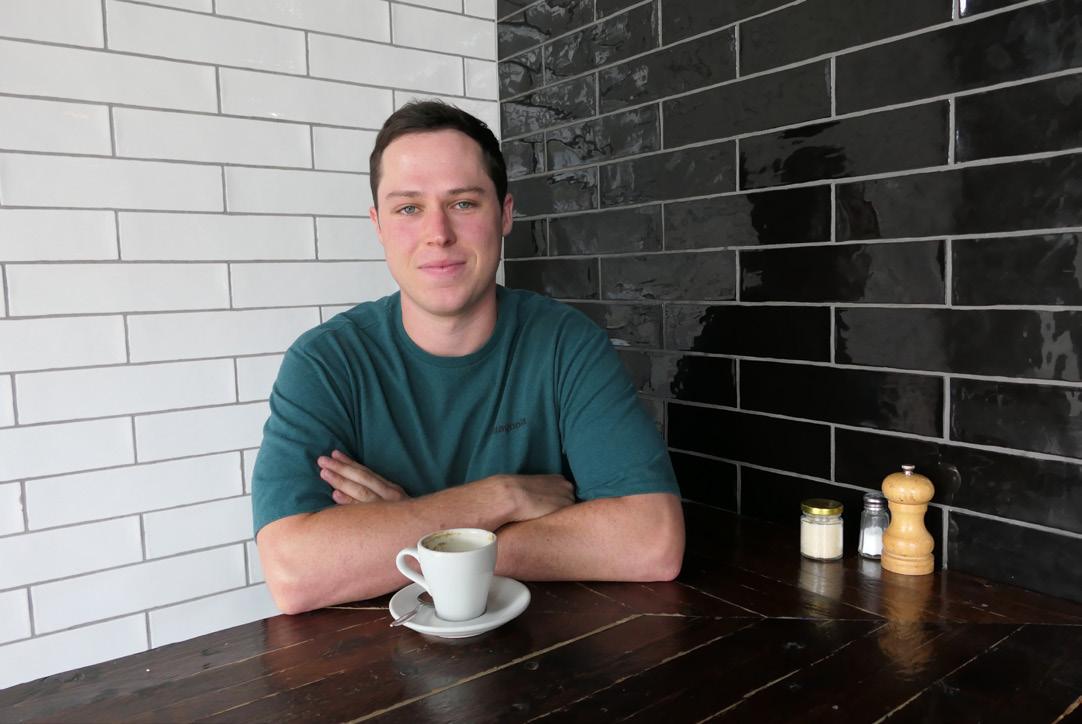
This month, Cranford Street Medical Centre rebranded to Juno Health. Led by general practitioners (GPs) Dr Catherine Smart and Dr Megan Pow, the newly rebranded practice specialises in women’s health and family medicine.

The practice’s new name pays homage to the Roman goddess Juno, who was known for her strength, wisdom, and ability to protect women. With a team of skilled and compassionate healthcare professionals, Juno Health is dedicated to empowering women
and improving their overall health and wellbeing. Pegasus Health Practice Relationship Manager, Lovey Ratima-Rapson, shared a blessing and karakia over the premises in an intimate re-opening ceremony this month.

Juno Health is also pleased to announce that Dr Catherine Smart will be running a dedicated Women’s Health Clinic on Tuesdays for both enrolled and non-enrolled/private patients. GP referrals are welcome for menopause, pelvic pain, PMS/PMDD, period issues, AUB, PCOS and IUCD and pipelle procedures.
Further information on the Juno Health team and the services they provide is available at www.junohealth.co.nz

In the coming months, 24 Hour Surgery will be upgrading its current rostering system with a new system called Core Schedule.

The transition will occur in phases, with the Reception and Acute Demand Co-ordination teams already using a read-only version of the new system. Additionally, these teams will have the opportunity to trial new updates that will enhance functionality and usability.
We have received excellent feedback from the reception team regarding the new system. One team member noted that it is accessible all the time, which is particularly useful given the varying shift start times. Another team member noted how great that it is always updated in real-time.
To align with our specific requirements in the 24 Hour Surgery and Acute Demand, the Pegasus Project Management Office is closely collaborating with the Core Schedule team. We are co-designing the rostering system and customising it to improve how we work. This will lead to a smoother transition and enhance the user experience.

The new rostering system provides several benefits, including a totally online experience accessible via a web app. Additionally, the new system provides one rostering system for all staff members, a “marketplace” to view available shifts or advertise shifts for others to pick up, and one place to view your roster, request changes, advertise for shift swaps, and more.
We will keep everyone updated as we progress with the rollout. In the meantime, if you have any questions or want to see what it looks like, the reception team will be happy to have a chat and show you how it works next time you are in.
Pegasus 2025 is produced by the Communications Team at Pegasus Health (Charitable) Ltd. Content within Pegasus 2025 newsletters has been included with the approval of content providers therefore please contact us if you wish to reproduce or alter and transmit any of the information or images contained within. Contact communication@pegasus.org.nz
